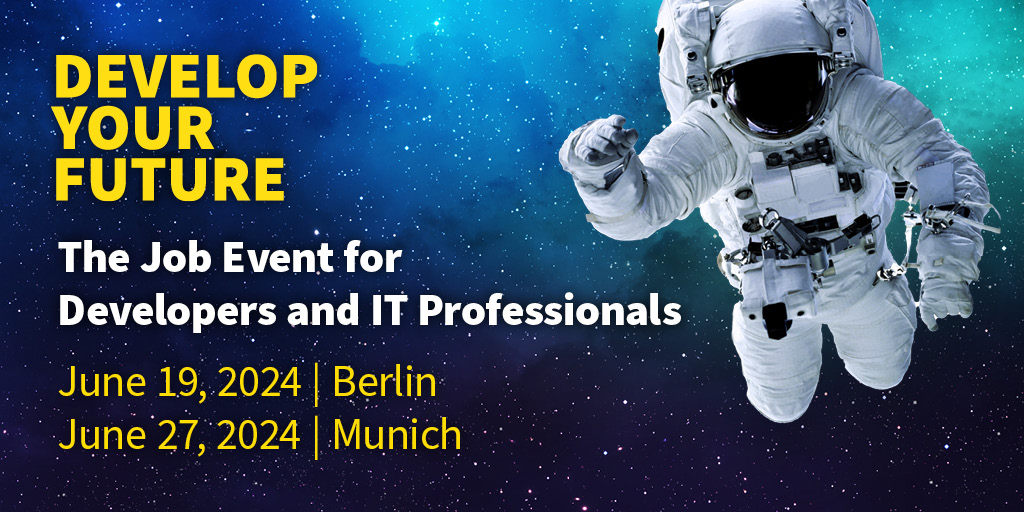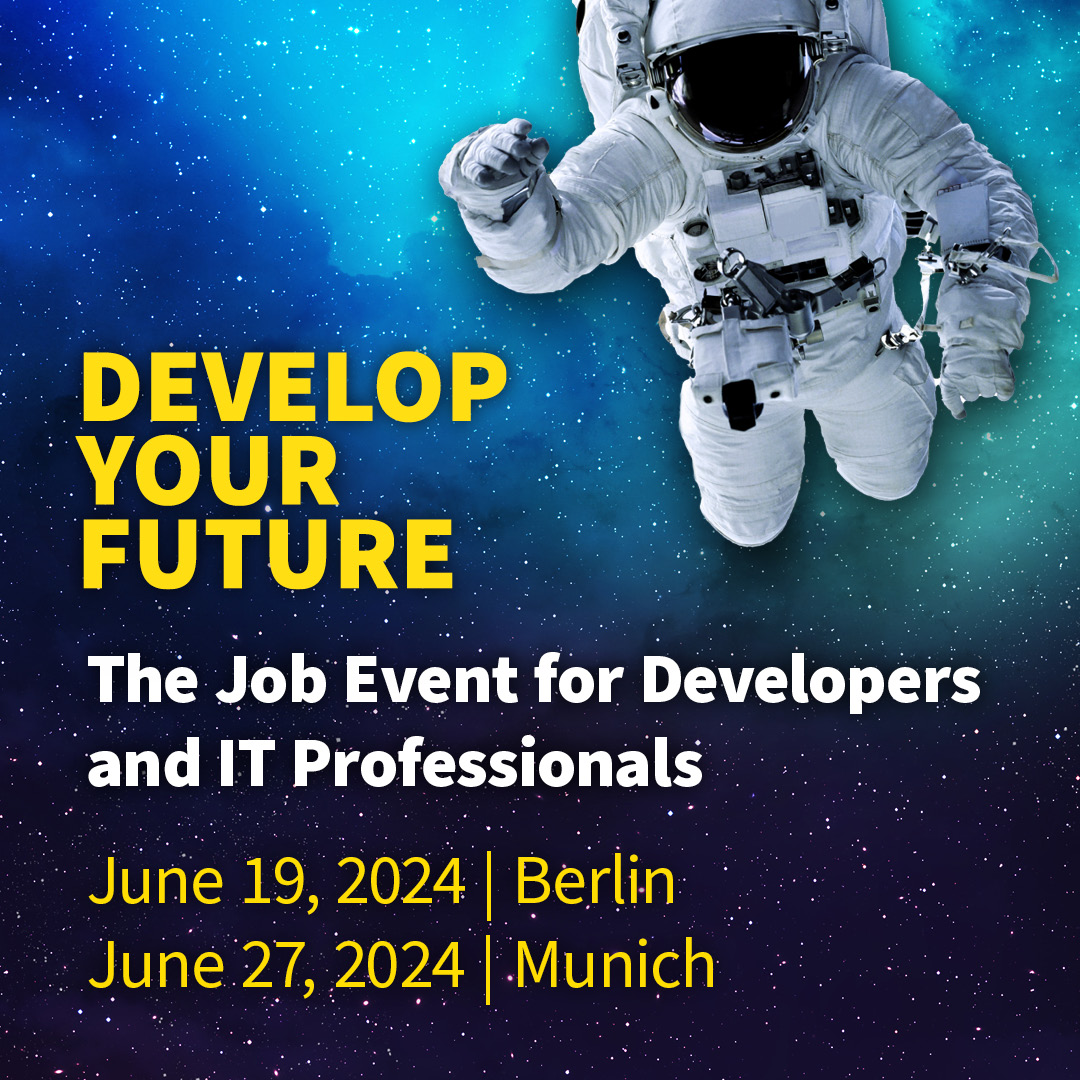devmio: Thank you for taking the time to answer our questions. First of all, could you please introduce yourself and your work with DevOps Institute?
Eveline Oehrlich: Hello, I’m Eveline Oerlich, and I have served as the Chief Research Officer at the DevOps Institute (DOI) for the last 5 years, focusing on a variety of research, content, and strategy development projects. I have worked in the field of IT for many years.
My first journey was as part of a large software company as the Director of Competitive Intelligence, then I started at Forrester Research in 2006 where I assisted IT automation vendors and enterprise IT clients on their strategy around people, processes, and technology, and then met the former CEO of DOI who asked me to help the Institute on research and content.
devmio: What exactly does the institute do and how does it help further DevOps and DevOps related practices to empower teams?
Eveline Oehrlich: DevOps Institute is a global professional member association with one mission: to advance the human elements of DevOps. We create a safe and interactive ecosystem where members can network, gain knowledge, grow their careers, lead and initiate, and celebrate professional achievements.
What does that mean really? We empower the people who power IT across different capabilities and roles. We bring roles and ecosystem owners together to learn and collaborate (e.g., during our events). We connect Ambassadors with learners and practitioners to advance both within their journey. We provide certifications for the different aspects of DevOps and beyond. We recently joined PeopleCert through an acquisition and are now part of a larger organization that has expanded the scope of best practices to ITIL and PRINCE2 for example. The goals are to improve, optimize and enable how people do their work — across the software development or service development lifecycles so that they can be strategic partners to their business teams who serve customers, clients, citizens, patients, and more.
devmio: Why is upskilling so important for DevOps?
Eveline Oerlich: Please know that upskilling is not just important for DevOps — but for all of IT and beyond. There are skill challenges across other functional areas, but the speed of change, innovation, and pressure towards transformation has caused significant skill challenges within IT. Our research shows that this is the biggest challenge for 31% of global survey respondents. To dig a little deeper, here are the top skill domains where we found the biggest skill gaps:
- 51% | Process and framework skills (e.g., familiarity with key process frameworks e.g. DevOps, Agile, SRE, ITIL®)
- 46% | Technical skills (e.g., Cloud platforms, serverless, microservices, APIs, programming languages, etc.)
- 44% | Human skills (e.g., collaboration, communication, social skills)
- 41% | Leadership skills (e.g., coaching, guiding, decision-making, etc.)
- 41% | Digital skills (e.g., digital fluency, understanding digital systems)
- 40% | Automation skills (e.g., replacing of manual processes, tasks or events with automation)
- 37% | Cognitive skills (e.g., analytical capabilities, quantitative and statistical knowledge)
- 35% | Business skills (e.g., business acumen, financial management, marketing, sales, etc.)
We also know that across the frameworks or best practices, the biggest skill gaps exist across both DevOps and DevSecOps followed by DataOps, SRE, Agile, Value Stream Management, and then ITIL. This is easy to understand as DevOps and DevSecOps are (while not the newest kid on the block) the most complex and to a large depend on a change of culture. It requires many different roles to work together.
Just think about developers who are very different than IT operation people. Their skills, knowledge, and abilities vary greatly, and so are the OKRs or KPIs used to measure their work. DevOps and DevSecOps require working across silos, collaborating, dropping old patterns, adopting new thinking, and requiring trust. Trust does not come automatically and needs to build through different best practices such as blameless.
We also know that across the frameworks or best practices, the biggest skill gaps exist across both DevOps and DevSecOps followed by DataOps, SRE, Agile, Value Stream Management, and then ITIL.
devmio: What immediate benefits does it offer to both individual employees and their companies?
Eveline Oehrlich: Employees: Upskilling offers opportunities for advancement. Other research shows that if employees do not have such an opportunity, 33% of them will quit their job. While compensation matters, meaning and competency matter as well. Upskilling brings both when applied as an ongoing practice.
Employers: The cost to hire someone is by far more expensive than to train an individual. While this is not from our research, it is foundational to our work in the DevOps Institute and within PeopleCert. Additionally, there are not enough skilled IT individuals out there to hire and if one can recruit someone, it will take time to develop this new hire into the organization. This coupled with the benefits of upskilling for employees are plenty of arguments to develop excellent upskilling opportunities to develop and upskill towards better long-term results for both employees and employers.
devmio: Looking at the research from the DevOps Institute Upskilling IT 2023 report, are there any year-over-year changes that surprised you?
Eveline Oehrlich: The great news is that the C-level within IT and the rest of the organization are aware of the skill gap challenge – finally.
Second, learning is happening more than before (maybe that is a positive effect of COVID-19) as 60% of the survey respondents have learned a new skill in the past 12 months. Active learning (besides back to in-person and a mix of digital) is very attractive. This means peer learning, expert coaching, and experimental learning are the preferred learning methods. This also means that IT organizations need to adjust how they upskill their staff members and organizations like DevOps Institute and others need to offer attractive alternatives to the “attending a class or event” learning types.
And finally, to confirm what I mentioned earlier on career satisfaction. While compensation across these modern IT roles such as DevOps Engineer, Automation Engineer, Platform Engineer, and Site Reliability Engineer have risen (see Robert Half Technologies for details), people value social and personal factors for their career satisfaction at an equal weight than compensation.
Upskilling offers opportunities for advancement. Other research shows that if employees do not have such an opportunity, 33% of them will quit their job. While compensation matters, meaning and competency matter as well. Upskilling brings both when applied as an ongoing practice.
devmio: What technical skills are currently the most in demand?
Eveline Oehrlich: Essential to remember that not all companies are digital natives — even though digital runs the business — as there are no more organizations that do not have some digital service within their offerings. No matter if you are digital-native or legacy, the complex and interconnected systems, applications, and services need to be planned, built, deployed, and run as cost-effectively as possible, with the highest resilience — while still delivering the best value to the business teams, and ultimately to the customers.
Priority 1 is cloud computing skills which, if we click deeper, include container orchestration, security, and API knowledge. Understanding modern computing architectures Infrastructure as Code, serverless computing, and multi-cloud are must-haves. As these hybrid environments are very noisy with alerts, events, and spewing out tons of metrics, Machine Learning and AI are important as well.
Priority 2 is complementary skills and depends on the tech stack of a company. Database skills and a multitude of programming skills (even though there is more adoption of low-code/no-code) are must-haves as well. As new topologies are being created while new best practice process frameworks such as DevOps, DevSecOps, ITIL, and others keep expanding, product and service thinking has become popular and from that, we see skills such as platform engineering as a must-have.
Priority 1 is cloud computing skills which, if we click deeper, include container orchestration, security, and API knowledge. Understanding modern computing architectures Infrastructure as Code, serverless computing, and multi-cloud are must-haves.
devmio: Where can teams still improve in their upskilling journey? Where were the largest barriers here?
Eveline Oehrlich: Human and leadership skills are what should be a key focus for upskilling journeys. Why? We have been trying to become more effective, more efficient, and more innovative by applying technologies, processes, and best practices — but we are still lacking in collaboration and cooperation.
As my good friend David Cannon (one of the main authors of ITIL) says: “The one-dimensional approach of upskilling people around technology is short-lived…the success of the technology depends on the ability to support process and people. The success of the process depends on how people use them and automate them. The success of people depends on the ability to do the right things at the right time, using tools to do them efficiently.”
We found that the majority of the upskilling budget goes into technology training, and I believe that this must change so that we can make progress faster toward high-performing teams who enjoy what they do while they do it. (See Jon Clifton, CEO Gallup, and Eveline Oehrlich’s podcast: the majority of people are unhappy at their job today).
devmio: IT talent is still facing a scarcity and companies often struggle to fill the gaps. Do you have any perspective on why this is true across the board?
Eveline Oehrlich: We have not invested in people in the past as IT was not seen as strategic. This has changed in today’s environment and we can thank the pandemic for the acceleration of the realization that IT is strategic.
Second, we have too much to do to take the time to upskill. If I look at myself during my last 20 years, I have only been able to upskill myself as I invested in it and as I learned on the job as an Industry Analyst. That is my luck but many others have not been given the time to upskill so their skills are lacking behind the must-have skill domains and next-click skill details.
There is also a challenge in the academic world. I would argue that many of the tech institutes, colleges, and universities have not updated their curriculum for a while to meet the must-have skills of today and (worse) of the future.
devmio: How are new hybrid work models changing how DevOps practices work?
Eveline Oehrlich: I do believe that hybrid work models accelerate the need for psychological safety. This means that people are comfortable in an organization where they can be themselves. We all had to juggle during the pandemic, and we all became more human to each other. We can continue this trend in hybrid work environments — and with it, we will improve trust, collaboration, and cooperation. Also, the fun factor will increase, while people deliver above and beyond.
People learn best when they get 70% of the learning from a challenge, 20% from a developmental relationship, and 10% from coursework and training.
devmio: What tips would you give for individuals looking to ask their employer about more upskilling opportunities?
Eveline Oehrlich: While I think this is important, I want to bust the bubble that an employer owns a person’s upskilling journey only. But one great way is to ask for something which is called a 70/20/10 model which is used in the learning community and means the following:
People learn best when they get 70% of the learning from a challenge, 20% from a developmental relationship, and 10% from coursework and training. Depending on the person, their job, and the situation, maybe ask to be put on a challenge to start with the 70% learning. If not possible, then see if you can become a partner or work with someone who can coach you. And then there are many excellent certifications and courses out there (which we have, and our partner community has) for excellent learning and upskilling.
devmio: How can they present the opportunity in a convincing manner and prove that it will benefit all parties involved?
Eveline Oehrlich: My favorite way of presenting with conviction is the “STAR” approach. I would describe the “S,” or “situation” of why learning a certain skill is essential, then I would describe the “T” or “tasks” necessary (e.g. attending an event, taking some time during the day to learn, being part of a new team or becoming a fly on the wall), then for “A,” what “actions” are needed on both sides (budget, feedback, time, etc.) and then for “R,” the results — which I would achieve (better at collaboration, better at container orchestration, improving my ability to automate something).
View the full Upskilling IT 2023 Report from the DevOps Institute here.
AUTHOR
Eveline Oehrlich
Eveline is an independent research director at the DevOps Institute. She held the position of VP and Research Director at Forrester Research, where she led and conducted research on a variety of topics including DevOps, Digital Operational Excellence, IT and Enterprise Service Management, Cognitive Intelligence and Application Performance Management for 13 years. She has advised executives and teams around the world on challenges and potential changes in people, processes, and technology. She is the author of many research papers and thought leadership pieces and is a moderator and speaker. She has more than 25 years of experience in the IT industry.



